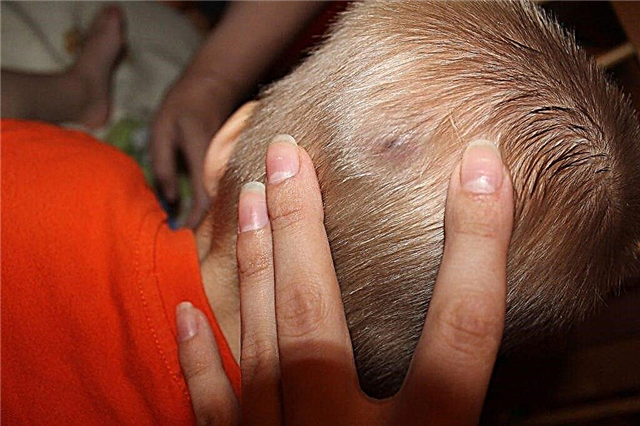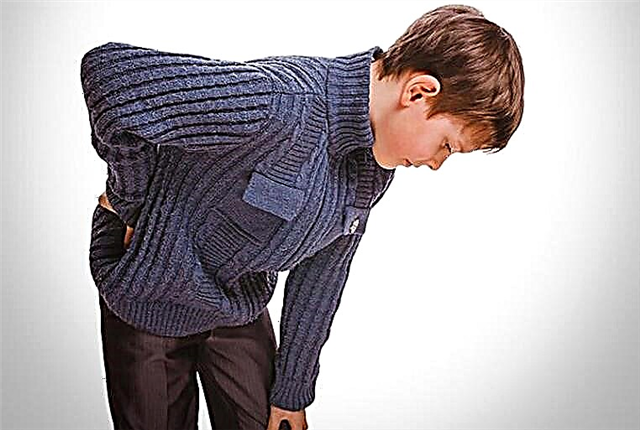How children grow up directly depends on their relationship with their parents. Psychoanalyst Gerald Schonewulf told what other mistakes parents make and what they can lead to.

about the author
Gerald Schoenewolf, psychoanalyst, author of books.
American psychologist Diana Baumrind described different styles of parenting in the 1960s, and her classification can still be found in many psychology textbooks. She initially identified three different styles of unhealthy parenting and one type of healthy parenting. Since then, other scientists have worked to develop this topic. Based on my own work and research, I propose to add six more types of unhealthy parent-child relationships to this classification. Thus, there are only 9. If you recognize yourself in one of these types, it means that you need to urgently change your line of behavior.
1. Authoritarian

Their credo is "It will be as I said!" These are dictatorial parents who primarily raise their children with punishment, not rewards. Moreover, they often punish children in a fit of rage. Children of these parents grow up frightened, insecure, embittered and unadapted to life. They often become authoritarian parents in the future, and the whole cycle repeats itself.
2. Indulging
Such parents do not put any restrictions on children, confusing love with permissiveness. They really need to get approval from their children, and because of this, they unwittingly give them power over themselves. Children usually grow up to be spoiled egoists, they think that everyone around them owes them something, and when they don't receive something, they throw tantrums - just like in childhood.
3. Neglecting parental responsibilities
Some parents do not raise children at all. They are immersed in their own world. Sometimes these are workaholics who do not have time for children, sometimes they endlessly quarrel with each other, and they barely notice the children. Their children grow up completely unaware of themselves and completely unable to cope with life's difficulties. They have low self-esteem, are insecure and cannot do without the support of others.
4. Hyper-carers

They want only good for their children. In fact, overprotection is a manifestation of their unconscious fears and insecurities. They are afraid of life and do not give their children the opportunity to learn from their own mistakes and build self-confidence. Children grow up fearful and anxious (the same were their parents), they do not know how to cope with life's difficulties and take care of themselves.
5. Narcissistic
Narcissistic parents use their children to meet their own needs. They do not care about children, but children should take care of them. Children have to tell them what they want to hear (otherwise all parental anger will fall on them), and sometimes they have to play the role of parents for their own parents. In other cases, narcissistic parents try to fulfill their own unrealized ambitions through their children (for example, in creativity). Children grow up lost and constantly in need of help and support.
6. Multipolar
Often, two parents have completely different approaches to raising children. The result is constant conflict. For example, one of the parents is authoritarian, while the other, on the contrary, permits everything. Children in such situations learn to manipulate their parents and usually take the side of the one who allows more. As a result, they do not learn to build constructive communication with others and grow up without understanding what healthy relationships are.
7. Dependents

Dependent parents do not want to let their children go, so they try to make them dependent on themselves. They make their life at home as comfortable as possible and provoke in them a sense of guilt for their desire to leave and start living separately. Such parents keep their children in an infantile state, and it seems to them that they cannot live independently. As a result, children suffer from low self-esteem, do not know how to be independent and defend their interests.
8. Isolated
Some parents live completely isolated from society and even from family and friends. They do not know how to build relationships with anyone, including each other. Therefore, these parents often bring up their children alone. Children do not learn to communicate and build relationships and also feel isolated.
9. "Toxic"
This is the worst parenting style. Such parents can be of any of the previous types, but at the same time they diligently pretend to be kind and loving, hiding their "poison". In Tennessee Williams' play The Glass Menagerie, a mother is confident that she loves her daughter and always tries to help her find a job or meet men, but in the process leaves her daughter feeling weak and shy.
Children of “toxic” parents often begin to understand what was happening to them only after many years. If they complain to their parents, they just laugh, and if they complain about their parents to someone else, then in response they often get something like: “Why are you not ashamed? She only talks about how worried about you! "
Healthy parenting
Authoritative
This is the only type of healthy parenting that psychologist Diana Baumrind has identified. Authoritative parents behave firmly with children, but without undue cruelty and a tendency to excessive punishment. They are open to dialogue. They teach children to build constructive relationships and adapt to any situation. They love their children and understand that sometimes love requires strictness. Their children grow up to be well adapted, independent and empathetic, which is the cornerstone of any healthy relationship with others.
- Top 10 Parenting Mistakes in Parenting
- 10 most effective parenting methods
- 21st century myths about parenting



